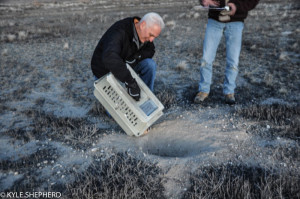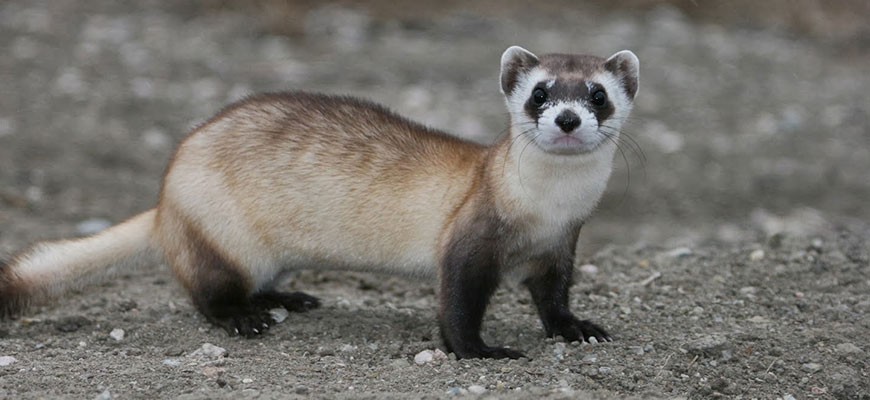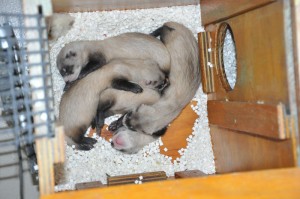The Louisville Zoo is full of excitement as the Black-Footed Ferret Recovery Program is set to celebrate its 25th year in 2016!
Black-footed ferrets (BFFs) were long considered one of North America’s most endangered animals before finally being declared extinct in 1979. A remnant population was discovered in Wyoming, but they were dwindling to only 18 animals by 1987. Faced with almost insurmountable odds, BFFs bounced back from the brink of extinction through the efforts of a multiinstitutional recovery program.
The Louisville Zoo joined the recovery effort in 1991 and became a proud participant in the reestablishment of the black-footed ferret into its native Great Plains habitat. The Zoo’s Conservation Center has, to date, produced over 1,030 kits and provided over 700 ferrets for reintroduction. Our Zoo’s Conservation Center has assisted greatly in the national program’s momentum. Not only have we played a role in developing the protocols that all institutions use, but we have also been the most consistent producer of kits (babies) each year.
The Conservation Center’s success is due, in no small part, to the dedication of keeper Guy Graves, who has been with our program from the beginning. Guy’s long-term involvement has allowed him to gain a keen insight into the habits and behaviors of the ferrets under his care, and with this knowledge, Guy has made numerous contributions to the program. Other facilities often rely on Guy to share his expertise as well as help them solve new issues or problems that develop.
Some incredible program milestones that occurred due to the Louisville Zoo’s participation:
- Evolution of breeding protocol for the ferrets Prior to our involvement in the program, all pairings were done in the evening because the black-footed ferrets are nocturnal. We discovered that the ferrets will breed during the day which made the pairing process much easier.
- Discovered the importance of temperature in kit survival The Louisville Zoo Conservation Center discovered that if a mother gets too warm, she will abandon her kits.
- Initiated feeding changes Pioneered feeding whole carcass (rats) to growing kits rather than the previously used gruel. This improved the ferrets dental health!
- Hand raising kits We were the first institution to hand raise a litter of ferret kits.
 Recently, Keeper Guy Graves and Zoo Director John Walczak traveled to Holly, Colorado for a black-footed ferret release at Cathcart Ranch. It was a moving experience for both and they were gratified to see more people made aware of the importance of black-footed ferret conservation. “I look forward to the day when we no longer need to supply captive raised animals for re-introduction,” said Keeper Guy Graves. “But, that is many years in the future as ferrets in the wild still face many challenges.” You can read more about their trip at louisvillezoo.org/BFFblog.
Recently, Keeper Guy Graves and Zoo Director John Walczak traveled to Holly, Colorado for a black-footed ferret release at Cathcart Ranch. It was a moving experience for both and they were gratified to see more people made aware of the importance of black-footed ferret conservation. “I look forward to the day when we no longer need to supply captive raised animals for re-introduction,” said Keeper Guy Graves. “But, that is many years in the future as ferrets in the wild still face many challenges.” You can read more about their trip at louisvillezoo.org/BFFblog.


